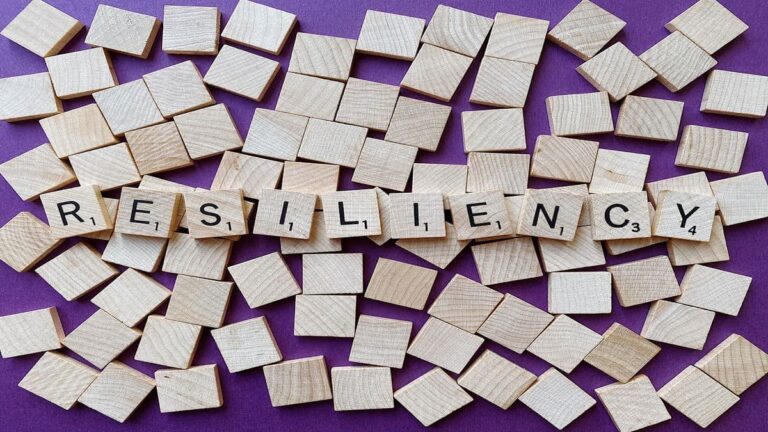Navigating Your Spirituality Journey: Insights and Strategies for Growth and Connection

What is spirituality? It is a broad term that encompasses a person’s relationship with the divine, the sacred, or the ultimate reality. It can involve the practice of religion or a more personal, individual approach to finding meaning in life.
Spirituality
Spirituality Is Path to Inner Peace and Understanding
For many people, spirituality is an integral part of their lives. It provides a sense of purpose and direction, helps to ground and center oneself, and offers a way to connect with something greater than oneself. Some people find spirituality through traditional religious practices, while others may explore more non-traditional paths such as meditation, yoga, or nature.
Regardless of how one chooses to connect with spirituality, it is a deeply personal and often transformative experience. It can bring a sense of peace and understanding to those who seek it, and can be a source of strength and resilience in times of struggle.
But what about the issue of copyright and plagiarism when it comes to spirituality? It is important to respect the intellectual property of others and give credit where credit is due. This means properly citing any sources that you draw upon in your spiritual practice or writing, whether they be texts, teachings, or other materials. Plagiarism is not only unethical, it is also illegal.
At the same time, it is important to remember that spirituality is not about adhering to specific rules or doctrine, but rather about finding what resonates with you personally and authentically. It is about forging your own path and discovering your own truth.
So, as you explore and deepen your spiritual journey, remember to respect the intellectual property of others and give credit where it is due. But also remember that your spirituality is a unique and personal experience, and it is up to you to determine what resonates with you and helps you connect with something greater.
Exploring spirituality can be a deeply rewarding and transformative experience, but it can also be challenging. It requires a willingness to be open and vulnerable, to confront one’s own beliefs and biases, and to question what one has always taken for granted. It requires a willingness to step outside of one’s comfort zone and embrace new ideas and perspectives.
But the rewards of this journey can be immeasurable. Spirituality can bring a sense of inner peace and understanding, a greater sense of connection to others and the world around us, and a deeper sense of purpose and meaning. It can provide a sense of hope and inspiration, even in the darkest of times.
There are many different paths to spirituality, and what works for one person may not work for another. Some people find spirituality through traditional religious practices, while others may explore more non-traditional paths such as meditation, yoga, or nature. Some people find spirituality through service to others, while others find it through artistic expression or creative pursuits.
Regardless of the path you choose, it is important to respect the intellectual property of others and give credit where it is due. This means properly citing any sources that you draw upon in your spiritual practice or writing, whether they be texts, teachings, or other materials. Plagiarism is not only unethical, it is also illegal.
At the same time, it is important to remember that your spirituality is a unique and personal experience, and it is up to you to determine what resonates with you and helps you connect with something greater. Do not be afraid to explore different paths and to find what works best for you. Trust your own inner guidance and listen to your own heart. Your spirituality is your own, and it is a journey that is deeply meaningful and rewarding.
As you explore and deepen your spiritual journey, it is important to be open and receptive to new ideas and perspectives. This can be challenging, as we all have our own biases and beliefs that we hold dear. But being open and receptive to new ideas and perspectives can broaden our understanding and deepen our connection to something greater.
One way to do this is to seek out diverse sources of spiritual teachings and practices. This can include reading books or articles from different authors or traditions, attending workshops or retreats led by spiritual teachers from different backgrounds, or joining spiritual communities or groups that represent a range of viewpoints.
Another way to be open and receptive is to practice mindfulness and self-reflection. This means paying attention to your thoughts and emotions, and questioning why you believe what you believe. It means being open to the possibility that you may be wrong or that you may have something to learn from others.
Finally, it is important to remember that spirituality is not about being perfect or adhering to a specific set of rules. It is about being authentic and true to oneself. It is about finding what resonates with you personally and what helps you connect with something greater.
So as you explore and deepen your spiritual journey, remember to be open and receptive to new ideas and perspectives. Seek out diverse sources of spiritual teachings and practices, practice mindfulness and self-reflection, and remember that spirituality is about being authentic and true to oneself. May your journey be one of growth, understanding, and connection.
As you explore and deepen your spiritual journey, it is important to be aware of the potential pitfalls that can arise. One common pitfall is the temptation to become dogmatic or rigid in one’s beliefs. This can happen when we become so attached to a particular belief or perspective that we become unwilling to consider other viewpoints. This can lead to close-mindedness, judgment of others, and even conflict.
Another pitfall is the temptation to use spirituality as a means of escaping from reality or avoiding difficult emotions or situations. While spirituality can certainly bring a sense of peace and understanding, it is not a substitute for facing and dealing with life’s challenges.
To avoid these pitfalls, it is important to cultivate a sense of balance and perspective. This means being open and receptive to new ideas and perspectives, but also being willing to challenge and question them. It means being willing to confront difficult emotions and situations, rather than avoiding them. And it means being mindful of how our beliefs and actions impact others.
As you explore and deepen your spiritual journey, remember to be aware of these pitfalls and strive for balance and perspective. This will help you to avoid becoming dogmatic or rigid, and to stay grounded and connected to reality. May your journey be one of growth, understanding, and connection.
As you explore and deepen your spiritual journey, it is important to remember that it is a journey, not a destination. Spirituality is not about achieving a specific state or reaching a certain level of enlightenment. It is about the ongoing process of self-exploration, growth, and connection.
This means that it is okay to have doubts, to question your beliefs, and to make mistakes. It means that it is okay to change your mind and to try new things. It means that it is okay to take breaks and to rest when needed.
One way to approach spirituality as a journey is to set intentions rather than goals. Intentions are focused on the present moment and on the process of growth, rather than on achieving a specific outcome. This can help to keep you grounded and focused on the present, rather than getting caught up in the future or becoming attached to specific outcomes.
Another way to approach spirituality as a journey is to cultivate a sense of curiosity and openness. This means being willing to try new things, to learn from others, and to be open to new experiences. It means being open to the idea that there may be multiple paths to spirituality, and that what works for one person may not work for another.
As you explore and deepen your spiritual journey, remember that it is a journey, not a destination. Set intentions rather than goals, cultivate a sense of curiosity and openness, and be open to the idea that there may be multiple paths to spirituality. May your journey be one of growth, understanding, and connection.
As you explore and deepen your spiritual journey, it is important to remember that it is not a solo journey. While spirituality is a deeply personal experience, it is also a communal one. We are all connected and interdependent, and our spiritual growth can be enriched by the wisdom and insights of others.
One way to connect with others on your spiritual journey is to seek out like-minded individuals who share similar values and beliefs. This can be through joining a spiritual community or group, participating in spiritual practices or retreats, or simply having conversations with friends or loved ones who share your interests.
Another way to connect with others is to be open to learning from people who have different beliefs or perspectives. This can be challenging, as it requires an openness to hearing and considering ideas that may be different from our own. But it can also be deeply enriching, as it can broaden our understanding and deepen our connection to something greater.
Finally, it is important to remember that spirituality is not just about connecting with others, but also about connecting with the world around us. This can be through practices such as nature meditation, service to others, or simply being present and mindful in our daily lives.
As you explore and deepen your spiritual journey, remember that it is not a solo journey. Seek out like-minded individuals, be open to learning from others, and remember to connect with the world around you. May your journey be one of growth, understanding, and connection.
As you explore and deepen your spiritual journey, it is important to remember that it is a journey that requires ongoing effort and commitment. It is not something that can be achieved overnight, but rather something that requires consistent effort and dedication.
One way to stay committed to your spiritual journey is to make it a priority in your life. This may mean setting aside dedicated time for spiritual practices or activities, such as meditation, prayer, or yoga. It may also mean making conscious choices that align with your spiritual values and beliefs.
Another way to stay committed is to find ways to stay motivated and inspired. This may involve seeking out new teachings or practices, joining a spiritual community or group, or simply surrounding yourself with people who support and encourage your spiritual growth.
Finally, it is important to remember that spirituality is not just about personal growth, but also about making a positive impact in the world. This may involve finding ways to serve others, to be of service to the planet, or to use your spiritual gifts and talents to make a difference in the world.
As you explore and deepen your spiritual journey, remember that it requires ongoing effort and commitment. Make it a priority in your life, find ways to stay motivated and inspired, and remember that spirituality is also about making a positive impact in the world. May your journey be one of growth, understanding, and connection.







